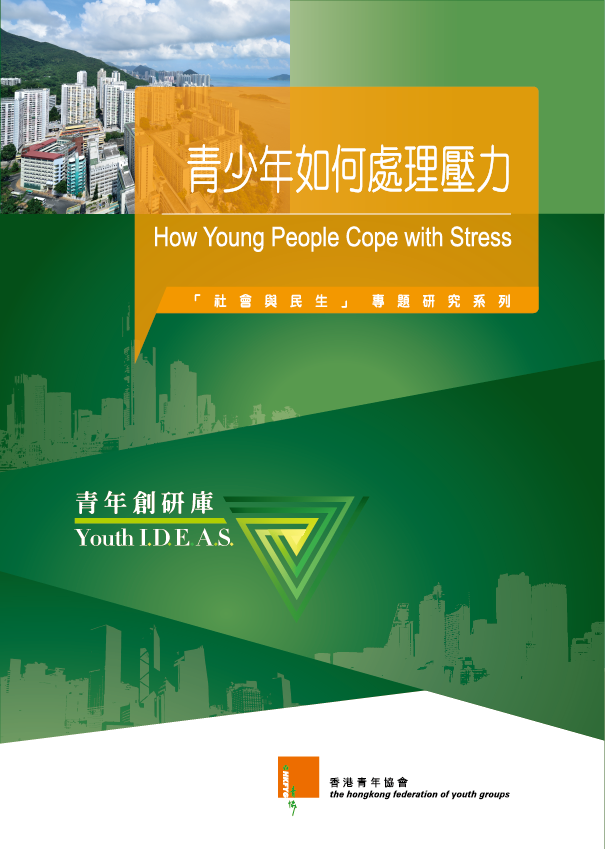How Young People Cope with Stress
Youth I.D.E.A.S. 22
Society and Livelihood
How Young People Cope with Stress
31 May, 2017
 Adolescence is a time of change and uncertainty: biological, psychological, emotional, and behavioral. In a highly competitive society like Hong Kong’s, many adolescents experience stress, often exacerbated by personal, familial, and social factors. How young people cope with stress is therefore worthy of investigation.
Adolescence is a time of change and uncertainty: biological, psychological, emotional, and behavioral. In a highly competitive society like Hong Kong’s, many adolescents experience stress, often exacerbated by personal, familial, and social factors. How young people cope with stress is therefore worthy of investigation.
According to the World Health Organization (WHO, 1948), “Health is a state of complete physical, mental and social well-being and not merely the absence of disease or infirmity.” In other words, in addition to keeping a good physical condition and preventing diseases, a person’s mental, emotional, and social health is also important.
The Hong Kong Federation of Youth Groups (HKFYG) has conducted various kinds of related research over the decades, and results showed that Hong Kong young people inevitably face different levels of stress. The HKFYG Hotline Counselling service received over 16,400 cases relating to emotional distress, with more than 2,100 cases for post-secondary school students, between September 2015 and August 2016. This constitutes a 60% increase on the figures for the previous year, suggesting that stress and its resultant emotional problems are growing among young people.
Adolescents are the pillars of our future society. It has long been the concern of society to ensure that young people have a healthy and joyous development. This research obtains data through territory-wide telephone polling with young people, case studies of young people experiencing stress, and interviews with scholars or experts. It is hoped that this research will provide a clearer picture of the issues related to stress and will result in recommendations that might assist the authorities concerned with the healthy development of young people.
Discussion
- The consequences of young people’s stress are profound, and require attention from society.
- Academia, Career, Prospects, Family Relationships, and Finance were the major sources of stress.
- The response of young people in Hong Kong to stress is in general positive, although some react negatively or pessimistically.
- The family structure, personalities, and the availability of resources for stress management all contribute to young people’s ability to withstand stress.
- The main reasons for young people not dealing with stress include lack of emotional understanding, inability to deal with stress, worries about not being accepted, not admitting they have a problem, and concerns about being stigmatized.
Recommendation
- Making good use of additional educational resources, strengthening the ability of students to manage stress. Fully subsidizing all senior primary and junior secondary school students to join outdoor education camps to boost their confidence, communication abilities, and problem-solving skills.
- Promoting a territory-wide “healthy life campaign.” The government should take the lead to liaise with families, schools, corporations, and regional organizations to raise public awareness of healthy living.
- Developing a long-term strategic direction to promote the physical and mental health of young people. The government should understand the trend of young people’s experiences of stress, and coordinate the relevant services and measures that different stakeholders provide.
- Encouraging young people to promote stress management, such as sharing ideas about “how to befriend stress.” This would enable young people to share their experiences of positive stress management in an appropriately youth-friendly way.
- Launching an instant online counselling platform for students. The government should allocate resources to develop an online support platform or app for secondary schools in Hong Kong.
- Identifying and providing timely help to families experiencing emotional crises. The current services could be strengthened to meet the growing demands of society.




